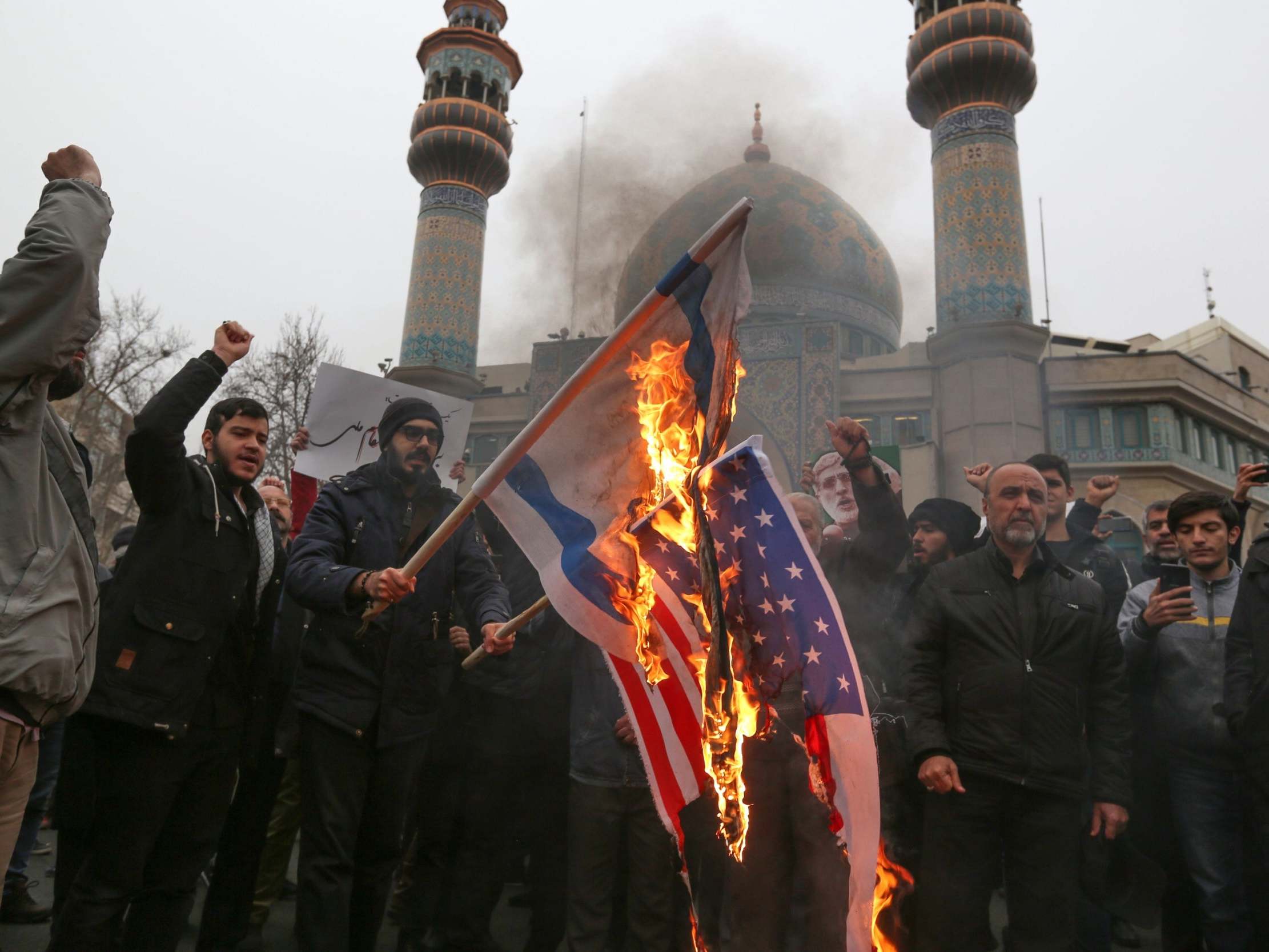Soleimani's funeral shows Trump underestimated how powerful anti-imperialism and nationalism is in Iran
President ignored warning signs and crashed us into crisis, says former White House senior official

Your support helps us to tell the story
From reproductive rights to climate change to Big Tech, The Independent is on the ground when the story is developing. Whether it's investigating the financials of Elon Musk's pro-Trump PAC or producing our latest documentary, 'The A Word', which shines a light on the American women fighting for reproductive rights, we know how important it is to parse out the facts from the messaging.
At such a critical moment in US history, we need reporters on the ground. Your donation allows us to keep sending journalists to speak to both sides of the story.
The Independent is trusted by Americans across the entire political spectrum. And unlike many other quality news outlets, we choose not to lock Americans out of our reporting and analysis with paywalls. We believe quality journalism should be available to everyone, paid for by those who can afford it.
Your support makes all the difference.The assassination of the commander of Iran’s Quds force, Qassem Soleimani, came as a shock to both Iranians and Americans. Although Soleimani and his force had been designated by the US as a terrorist organisation, it was never expected that Washington would kill him this way.
But many are still surprised, asking how Donald Trump, a vocal critic of endless Middle East wars, got to this point.
Experts have been warning that Mr Trump was eventually going to stumble into a serious conflict. And while his more seasoned batch of initial advisors were able to stave off a potential conflict, his current circle of close aides seems to be pushing him towards conflict.
“The adults left the administration and they were left with no one willing or able to speak truth to Trump. He drove past the warning signs and crashed us into this crisis,” says Brett Bruen, former White House director of global engagement, adding that unlike many of Mr Trump’s other mistakes, a summit or a trade deal is not going to solve this one.
Mr Bruen said Mr Trump assumed that Iranian leaders were similar to the North Koreans, and tried again and again to entice them with a splashy show and financial favours. “All he did was create even greater animosity and anti-American sentiment, both within Iran and amongst our traditional allies. Tehran knew Washington was in a tough spot and tried to elevate the costs on countries like Saudi Arabia and the United Arab Emirates,” he told The Independent.
On the other hand, the response in Iran to Soleimani’s killing seems to have caught the Trump administration off-guard. Iranians showed up huge numbers for the general’s funeral with massive crowds filling the streets in multiple cities across Iran. Although a controversial figure disliked and despised by many Iranian dissidents for masterminding and leading Iran’s regional proxies, Soleimani’s key role in the fight against Isis brought him respect across various socio-political groups inside the country.
“The massive turnout for the funeral of Soleimani reminds us that the theme of anti-imperialism and nationalism is still a very powerful force in Iranian politics,” said Nader Hashemi, Middle East Studies director at the University of Denver, told The Independent:
Mr Hashemi said “Soleimani’s ugly role in Syria, defending Bashar al-Assad, via war crimes, is not generally known in Iran. What is also not known is his involvement in the bloody repression more recently in Iraq, where at least 500 peaceful protesters have been killed by forces linked to Soleimani.”
He added: “Any attempt to question Iranian policy in Syria or Iraq has been repressed by the Islamic Republic, hence the very one-sided view of Soleimani as a war hero among the general public. Many Syrians and Iraqis would beg to differ on these points.”
Many activists have been warning that the Trump administration’s hawkish policy towards Iran contributes to authoritarianism inside the country and undermines prospects for democracy. Iran had seen a massive wave of anti-government protests just recently and before the killing of Soleimani, the focus of Middle East politics was on anti-government protesters demanding their rights across the region.
“Now the focus of politics is American imperialism. This is a huge ideological gift to the leaders of the Islamic Republic, especially hard-liners, who don’t want to talk about democracy or human rights. Their preferred topic of conversation is American aggression. Trump has just handed them a huge victory and made their job much easier,” Mr Hashemi told The Independent, adding: “This is part of a longer tradition of Western foreign policy towards the Middle East that has deep roots and continues until today.”
Iran’s Supreme Leader Ayatollah Ali Khamenei weeps at Soleimani prayers
Here in Washington, Mr Trump and his close aides have been pushing the narrative that the assassination of Soleimani was a move to prevent war and make Americans safer. But their narrative is facing serious pushback from Democratic leaders, even those Democrats who have long been known to hold hawkish positions towards Iran.
Critics argued that the killing would not stop the Quds force and, to the contrary, would throw an already volatile region into more chaos.
Narges Bajoghli, assistant professor of Middle East Studies at Johns Hopkins University, warned against expecting a big change in the Revolutionary Guard’s elite unit. “The only difference is that now with the assassination of Soleimani, there is a renewed energy in the force and a more focused mission to push the US military out of the region,” Ms Bajoghli told The Independent, adding that she believed the Quds force would play the long game, trying to make it untenable for American forces to stay.
Join our commenting forum
Join thought-provoking conversations, follow other Independent readers and see their replies
Comments